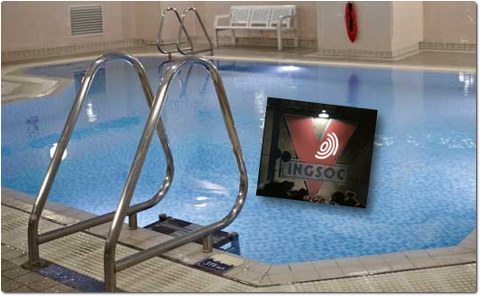

"Software shouldn't be patentable," Christine Hall of FOSS Force wrote last night. "It's already covered under copyright law, where it belongs." That's just how a lot of software professionals feel, not just FOSS proponents. So who benefits from (and lobbies for) software patents? Monopolists like Microsoft, their lobbyists, and their patent lawyers for the most part.
"Yes, even some large companies have gotten fed up (but not Microsoft)."According to this latest news (covered here a couple of days ago), "APPLE AND ERICSSON have agreed to a global patent deal that will end legal hostilities between the two companies."
Yes, even some large companies have gotten fed up (but not Microsoft). "The specifics of the deal remain confidential," says this report, "but it looks like Ericsson has come out on top of the negotiations after confirming that Apple will make an initial payment to Ericsson and then ongoing royalties."
The Microsoft-controlled Nokia is said to have gotten something similar out of Apple. A lot of these mobile patents pertain to wireless communication, design, and user interfaces/software. These threaten what we have come to know and appreciate as mobile Linux, or FOSS platforms (such as Android) as zero-cost operating systems that commoditise phones and other gadgets, like portable small devices.
We are rather disturbed to see the degree to which patent lawyers dominate the debate in the media. Where are representatives of the software industry (meaning independent developers, not software behemoths with monopolies in their respective field/s)? Spokespeople for the interests of software developers are typically absent, whereas the giants have dedicated front groups like the Business Software Alliance (BSA).
"Where are representatives of the software industry (meaning independent developers, not software behemoths with monopolies in their respective field/s)?"In two recent posts of ours [1, 2], Australia's patent lawyers were shown with their biased opinions. They currently freak out a bit because software patents are losing their teeth in Australia, at a fairly high level. Truthfully, it can go to an even higher (the highest) level. As George McCubbin from Minter Ellison put it in his conclusion/concluding remarks: "RPL Central can of course still seek special leave to appeal the decision to the High Court, which, if leave was granted and the appeal proceeded, would likely resolve this issue in the short term at least."
Minter Ellison is just the latest legal firm to write about this. Here is some background or context: "In its long awaited decision Commissioner of Patents v RPL Central, the Full Federal Court has rejected another computer-implemented invention for failing to constitute patentable subject matter. In doing so, Justices Kenny, Bennett and Nicholas overturned the decision of the trial judge, Justice Middleton, delivered in August 2013.
"Patent law needs to take into consideration whether patents in one domain or another actually offer a benefit to society and encourage development.""The decision has implications for any software developers."
Yes, well, since they provably hate these patents. There were online petitions in Australia about it (covered repeatedly in Techrights at the time), indicating that it's good news for developers, maybe bad news for patent lawyers.
Patent lawyers from Manatt Phelps & Phillips LLP (US) are doing 'damage control' right now, a year and a half after Alice. This other new article says: "There may be a glimmer of hope for owners of software patents as it is possible that the Federal Circuit is rethinking, or at least grappling with, the larger implications of Alice" (the software patents slayer).
They note that "may be a glimmer of hope for owners of software patents" as if it's a disaster that software are dying (a disaster for patent lawyers for sure, but take note of the biased tone).
Another US-based legal firm has just published something related to this. "As background," it says, "the patent relates to computer memory modules that comprise a printed circuit with upwards of a dozen “random access memory” (RAM) chips (sometime on both sides of the circuit board) for short-term storage."
This, unlike what was covered above, actually involves some hardware. It is not something which a sole programmer can produce in a basement.
Patent law needs to take into consideration whether patents in one domain or another actually offer a benefit to society and encourage development. When it comes to software patents, evidence strongly suggests that they mustn't exist and the US Supreme Court seems to agree. ⬆